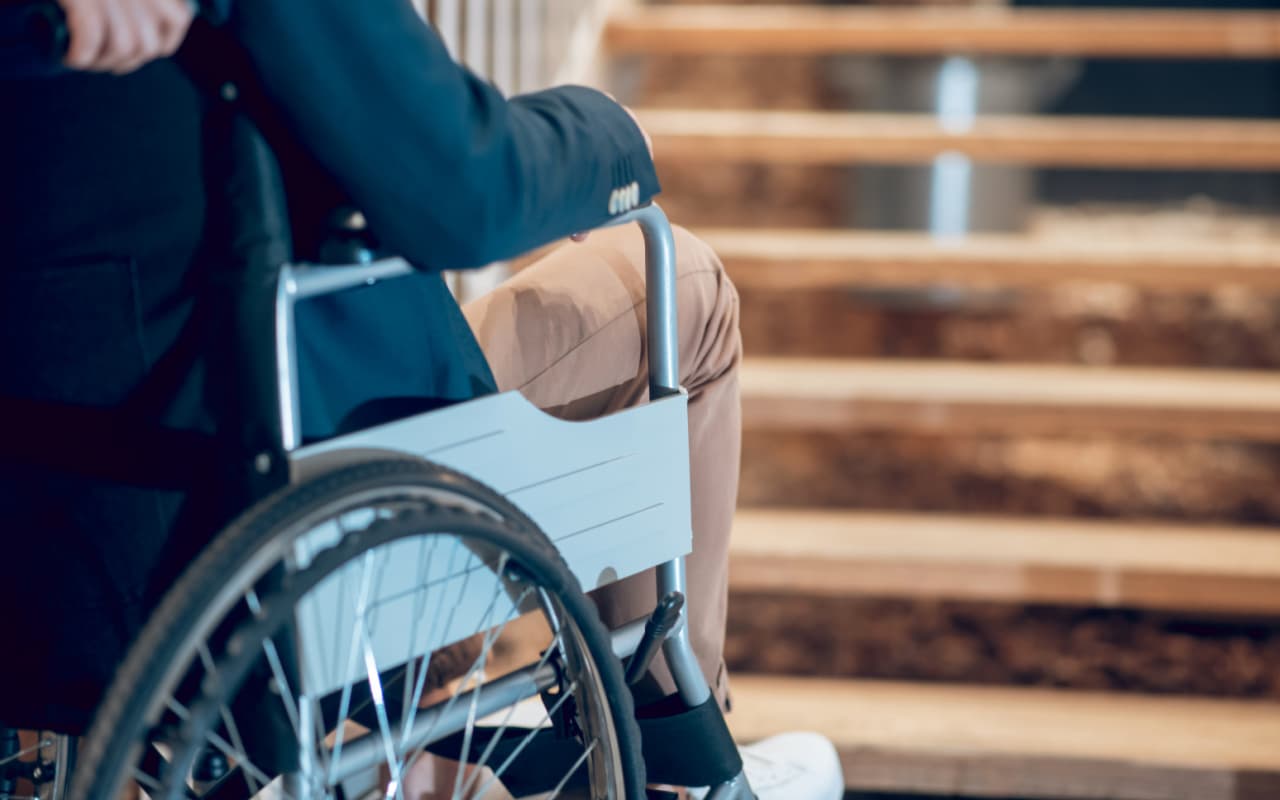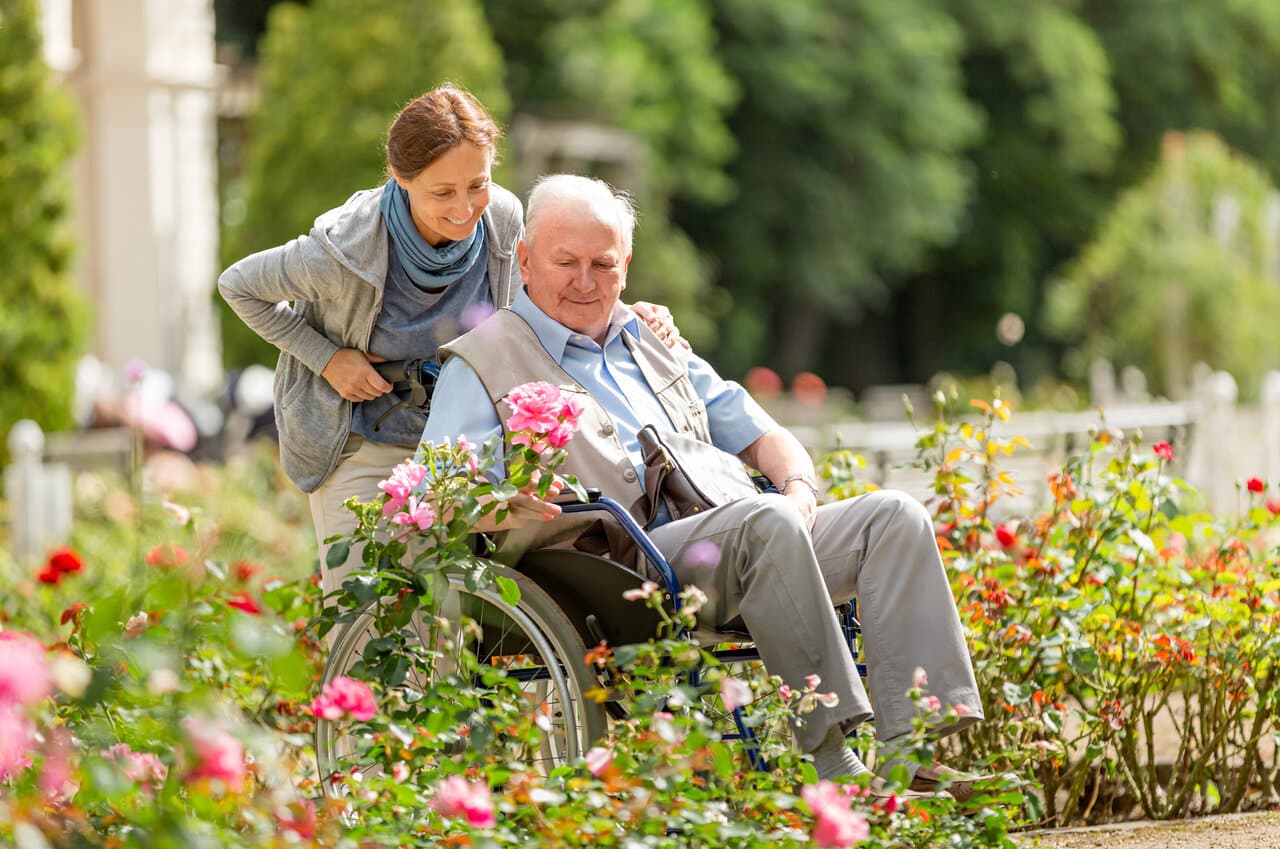The Best Supplies for Limited Mobility in 2025

Verified by Kiera Powell, R.N. and written by Chad Birt on Wed Jan 01 2025.
Medically Verified

Many older adults who require care also experience limited mobility. While devices like walkers, canes, and rollators can promote independence at home, more complex activities such as bathing, changing, or using the toilet often demand extra assistance.
If you provide care for someone with mobility issues, this article is for you. We'll discuss the impacts of immobility on your loved one's physical and mental health, what you can do as a caregiver to prevent negative outcomes, and highlight some of the products Carewell offers to make your life easier.
Limited mobility can stem from various medical conditions or disabilities, including paralysis, arthritis, multiple sclerosis, cerebral palsy, muscular dystrophy, and spina bifida, among others.
How does limited mobility affect your loved one’s health?
The first step in caring for someone with mobility challenges is understanding the associated health risks. When an individual is unable to move around freely, their circulatory system slows, which can lead to blood pooling and the formation of clots.
Limited mobility also increases the risk of other health problems, including:
Skin breakdown
Pressure ulcers (bedsores)
Respiratory issues
Muscle atrophy
Weak bones
Progression of pre-existing chronic illnesses
Beyond physical health, it significantly increases the risk of mental health problems like anxiety and depression. Furthermore, the lack of independence can result in social isolation and loneliness, potentially leading to cognitive impairment. Fortunately, there are proactive steps caregivers can take to help recipients navigate and avoid these issues.
How can caregivers help individuals with limited mobility?
There are several things caretakers can do to help many people with limited mobility decrease these risks and stay healthy, including:
Bilateral exercise
Kerry Mellin, an experienced caregiver, and founder of EazyHold Mellin Works LLC, recommends encouraging your loved one to use both of their arms equally (if they’re able).
“Bilateral exercise is an important tool for fitness and pain reduction,” said Mellin. “Make sure your loved one has the necessary tools to use both sides of their body equally and incorporate weight lifting and exercises. Don’t forget the weaker side of the body when doing daily activities like eating, grooming, writing, or playing cards.”
Shift their weight regularly
People with limited mobility are more likely to develop skin problems. Brittany Ferri, Ph.D., OTR/L, CPRP, Founder and Occupational Therapist at Simplicity of Health in Rochester, New York recommends changing your loved one’s position throughout the day.
"This relieves pressure on the skin and prevents injuries like bedsores where the skin breaks down from a lack of oxygen and pressure relief. Those in wheelchairs can also benefit from pressure-relief cushions to help this process when sitting."
Kiera Powell, RN, adds, "Frequent repositioning makes a huge difference. I would recommend placing a pillow lengthwise beneath the patient’s hip and lower back and alternating sides every other hour. Additional pillows should be placed under each arm and beneath the calves to float the heels off the bed. Another preventative measure for pressure injuries is to place a foam dressing on the patient’s sacrum. If choosing to do this, check under the dressing at least once a day and replace when soiled.”
Activities to pass the time
Your loved one’s mental health is just as important as their general well-being. It’s crucial they feel heard, seen, and able to connect, regardless of their physical capabilities.
Provide support by encouraging creativity. If you care for someone unable to move, have them dictate a poem, song, or story to you. If your loved one has some mobility, encourage activities like coloring, knitting, or working a crossword puzzle.
Staying busy can make the days more interesting and less tedious. Plus, Mellin says creating something tangible will "connect [your loved one] to the outside world and that can be a legacy to remember.”
Don’t forget to care for yourself
Caring for someone with a disability or limited mobility requires strength and physical endurance. “One of the most important things you can do to protect your body when you’re caring for someone who is immobile is to take a class on transfers and repositioning,” said Melanie Musson, an experienced senior caregiver with Life Insurance Post. “If you don’t take care of yourself, you’ll get hurt, and you won’t be able to be a caregiver anymore.”
What caretaking supplies do I need to help someone with limited mobility?
Now that you know a little more about caring for someone with mobility issues, let’s look at some of the best-selling products available here on the Carewell website:
Mobility devices—walkers, canes, wheelchairs, and rollators
Mobility devices like walkers, canes, and rollators can help your loved one maintain balance and independence. However, it's always best to consult with a physical therapist or your senior's primary care physician before using these devices.
Walkers are ideal for anyone who has difficulty keeping their balance or bearing weight on both legs. They can also benefit individuals with poor vision or coordination issues.
Canes are usually recommended for people who experience pain or weakness on one side of the body. If you care for someone who’s relatively mobile but experiences hip, knee, or leg pain, a cane is worth considering.
Wheelchairs might be necessary if your loved one is paralyzed or unable to bear the weight of their upper body.
Rollators are similar to walkers but have wheels and are pushed instead of lifted, offering more fluid movement.
Gait belts assist with moving your loved one from their bed into their wheelchair or vice versa. Pro tip: Check out this step-by-step guide on how to use a gait belt from the University of Michigan.
Leg lifters are sturdy straps designed for people with limited leg strength, making daily activities like getting out of bed or into the car much easier.
Recommended Read: Arthritis Relief—Care Kit Recommendations
Accessories for limited mobility in the bedroom
If you care for someone who is bed-limited, you might want to invest in the following:
Body aligners are a must-have accessory for bed-limited individuals. They encourage proper posture and relieve pressure on skin areas susceptible to bedsores.
Elbow protector pads reduce the force on the elbows, providing relief. Bony areas of the body like the knees, elbows, and wrists are more likely to experience pressure sores.
Transfer boards make it easy to move someone from their bed to a wheelchair or another piece of furniture (like a couch). The transfer board we carry is made of Baltic birch with a clear lacquer finish and can hold up to 440 pounds.
Accessories for limited mobility in the bathroom
Bathrooms are notorious for having slippery surfaces and moist environments—two factors that may increase the risk of a fall. To protect your mobility-challenged senior, consider installing the following items in your bathroom:
Toilet safety rails make transitioning from a wheelchair, rollator, or walker to the commode that much easier.
Bath benches can help keep your loved one comfortable and supported during bath or shower time since you might not be able to fit a wheelchair into the bathtub.
Wall grab bars make transitioning from the toilet or tub to a wheelchair or other mobility device easy.
If you have questions about mobility devices or need help making the right decision, reach out to our friendly Care Team. Call (800) 696-CARE or send an email to support@carewell.com.
Recommended Read: Checklist for Urinary Incontinence Care—PDF Download
Other Articles You May Like

Traveling With Mobility Issues. Top Tips
Many people take being able to travel for granted — whether it’s to a new country or just to get out of the house. But if you’re managing a mobility issue, it can be tricky to navigate, even with the support of a caregiver.
Read More >
Simple Tips for Making Your (or Your Loved One's) Wheelchair More Comfortable
Using a wheelchair for extended periods may increase the risk of pressure ulcers, joint pain, and skin breakdown. Fortunately, there are various things you can do to prevent these problems and make your or your loved one’s wheelchair more comfortable.
Read More >
Chad Birt is a freelance medical writer who resides in Astoria, Oregon. When he isn't behind a keyboard, you can find him hiking, camping, or birdwatching with his wife Ella and their two dogs, Diane and Thoreau.